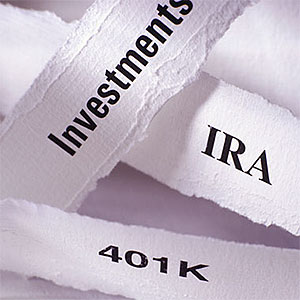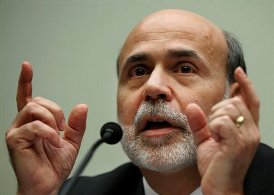8 Reasons You Need A Roth IRA

The retirement account offers tax and withdrawal advantages and greater flexibility than a 401k. It can even help you buy a house.
Smart young savers know to participate in their companies’ 401k’s as soon as they join the workforce to benefit from as many years of saving and compounding as possible. But really smart young savers should know to save via a Roth IRA, too.
In fact, the Roth IRA is such an important retirement investment tool that it now has its own holiday. Earlier this year, Jeff Rose, a financial planner and Good Financial Cents blogger, hosted an online event, the Roth IRA Movement, which he plans to make an annual celebration. He rallied 145 other personal-finance writers to spread the word about the star savings account and to inspire rookie investors to open their own accounts.
“Overall, the turnout was awesome,” says Rose. “Several people have already e-mailed me and said that someone they know opened a Roth IRA because of reading a post about it.”
Here are some of our favorite lessons to take away from the inaugural Roth IRA Movement:
1. You can open a Roth no matter how young you are, as long as you have earned income. Blogger Peter Anderson of Bible Money Matters points out in his Roth IRA Movement contribution, “10 reasons why I love the Roth IRA (and why you should, too)”: “There isn’t an age limit to have a Roth IRA, so even your children can have one!” They can, that is, as soon as they start making money working, whether it from babysitting, lawn mowing, working retail or some other way.
It’s very easy to open a Roth through your bank, or you can try one of MSN Money’s online brokers. TD Ameritrade requires no minimum initial investment and charges no maintenance fees. For your application, you’ll need just your Social Security number, your employer’s name and address, your checking or savings account number and bank routing number (if you want to fund the Roth IRA electronically), and your beneficiary’s address and Social Security number.
2. You can withdraw Roth IRA contributions whenever you want, tax- and penalty-free. On his eponymous site, financial planner Tim Maurer writes about “The three guarantees in financial planning,” which he identifies as surprises, change and failure. He adds that the Roth IRA offers the liquidity you’ll need to deal with those three guarantees. “Roth IRAs are unlike any other retirement investment bucket, for lack of a better term, as you’re allowed to back money out of the account for any reason at any time at any age and without any tax consequences or penalties.”
It’s true. Because you’ve already paid taxes on your income before it goes into the account, you can withdraw your contributions whenever you need to, tax-free. (Be aware, though: If you withdraw all of your contributions and begin dipping into earnings before the account has been open for at least five years, that money would be taxed; if you’re under age 59½ at the time of the withdrawal, you’ll also be hit with a penalty. But there are exceptions — more on that in a minute.) Of course, we don’t recommend dipping into your retirement savings early for frivolous reasons. But if you have an emergency, you’ll be glad to know your money is accessible.
3. Roth withdrawals in retirement are generally tax-free, unlike payouts from traditional IRAs, which are generally taxed in your top tax bracket. This unique characteristic of Roth accounts is especially advantageous for young savers. When you’re just starting out, you can assume (or at least hope) that your income will go up and you’ll climb to a higher tax bracket in later years. So you’re better off paying taxes on contributions now rather than on withdrawals later. “The greatest wealth is created by paying taxes when the rates are lowest,” writes financial planner Michael Kitces in “Roth vs. traditional: The four factors that determine which is best” on his Nerd’s Eye View blog. “If rates are low today and higher in the future — e.g., for the young worker, or someone in-between jobs — go with the Roth and pay taxes at today’s low rates.”
4.You can withdraw all of your contributions and up to $10,000 of earnings to buy your first house, tax- and penalty-free, once the account has been open for at least five years. Personal-finance blogger Kevin Mulligan writes in the post “Withdrawing money from a Roth IRA: How does it work and when can I do it?” at the Free From Broke blog: “Because the Roth has its own special tax considerations (you contribute after you are taxed), it also has special withdrawal rules, which could be very beneficial to you.”
First-time homebuyers can take advantage of such a withdrawal any age. Again, we don’t recommend stealing these funds from your future self, but this kind of flexibility is certainly an appealing quality of the Roth.
5. Unlike a 401k, a Roth IRA gives you more flexibility to maximize your contributions to the account each year. While you’re still limited to $5,000 in annual Roth contributions, you get a 16-month window to fund the account. “Perfect for procrastinators like me, the Roth IRA account type allows people to contribute to their Roth IRA right up until tax day of the following year,” writes Anderson, of Bible Money Matters.
6. You’ll enjoy greater freedom of choice with a Roth IRA than with a company retirement plan. Anderson also notes that “a Roth IRA will usually have more investment options than your company 401k,” in which your choices are limited to funds selected by your employer. With a Roth IRA, you are free to invest in stocks, bonds, certificates of deposit, mutual funds, exchange-traded funds and more, allowing you create an appropriately diversified portfolio.
7. You can leave your money to grow in a Roth throughout your life. With a 401k or traditional IRA, you’ll typically have to make annual required minimum distributions (RMDs) once you turn 70½. Not so with a Roth IRA. “With my Roth IRA, I’m in control of when I make withdrawals,” Britt Gillette writes in “5 reasons why I love my Roth IRA” at the Your Roth IRA website. “I’m not forced to do anything. In fact, if I want to let my money compound tax-free until I die at age 100, I can do so.”
8. Even when you’re gone, your Roth IRA will still be doing good. You can pass on your funds after you die, and “heirs get to receive this money in annual or lump-sum distributions in the same tax-free way that you would have,” writes financial planner Frances St. Onge in the post “Why invest in the Roth IRA?” at the All Things Financial Planning Blog. “By contrast, if they receive your 401k or IRA as an inheritance, they will have to pay taxes on the amount withdrawn each year, just like you did.”




